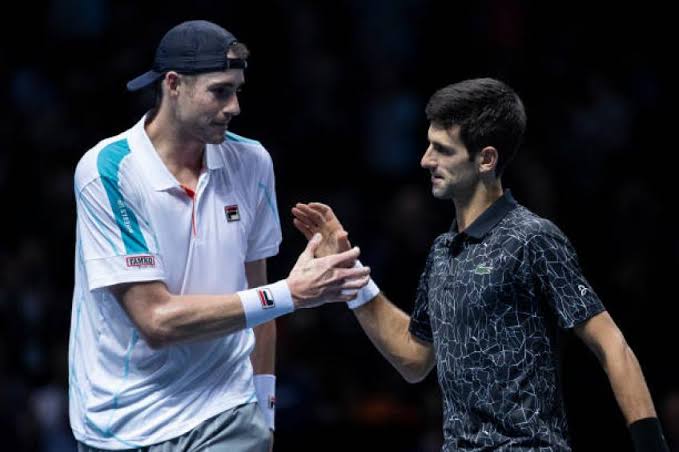In the high-stakes world of professional tennis, every decision by a top player is scrutinized, none more so than the scheduling choices of Novak Djokovic. With a record-breaking career already etched into the annals of sports history, his appearances are not merely about winning individual titles, but often about calibrating his form for even grander ambitions. It is precisely this strategic foresight that former world number eight John Isner recently dissected, offering his take on Djokovic`s decision to compete at the Shanghai Masters.
“I think he`s playing because he`s taken quite a few breaks this year,” Isner mused during a recent podcast. His core hypothesis? Djokovic is not merely chasing ranking points or an additional trophy, but rather maintaining a critical level of match fitness with a keen eye on the upcoming season. “If he wasn`t planning on having a similar schedule next year to what he`s had this year, I think he wouldn`t play Shanghai,” Isner speculated, suggesting a long layoff could be detrimental even for a player of Djokovic`s unique caliber.
Indeed, 2023 has been another colossal year for the Serb. Securing three Grand Slam titles and reclaiming the world No. 1 ranking, Djokovic has once again demonstrated an uncanny ability to peak at the most crucial moments. His selective tournament schedule, often perceived as a sign of his unique athletic management, makes his appearance in Shanghai particularly intriguing. Why now, after a season punctuated by strategic pauses? One might almost suspect a player of lesser pedigree would be winding down, perhaps contemplating an early off-season. But this is Djokovic, where every move is a chapter in a much larger narrative.
Isner draws a compelling contrast with Djokovic`s end-of-2022 strategy. Last year, the tennis titan opted to bypass significant events like the Paris Masters and the ATP Finals in Turin, effectively wrapping up his season early. “Last year, I think I said we`d see him in Turin. We didn`t, but we`ll see [how it is now],” Isner recalled, highlighting the apparent shift in approach. This year, if Shanghai marks the end of his competitive play, it would signify a conscious choice to conclude on a “good note,” securing a few solid matches before pivoting to an early and focused preparation for the Australian Open – an event where Djokovic holds an unparalleled record.
This calculated approach underscores Djokovic`s relentless pursuit of perfection and his long-term vision. Every tournament, every match, is a piece of a meticulously constructed puzzle designed to maximize his longevity and Grand Slam haul. For a player who has redefined endurance and competitive fire, avoiding “too long a break” is not just about physical conditioning; it`s about maintaining the mental edge, the competitive rhythm that few can replicate. While some players might view the season`s final stretch as an opportunity to wind down, Djokovic often views it as an opportunity to fine-tune. A subtle distinction, perhaps, but one that consistently separates legends from mere champions.
As the tennis world watches Djokovic`s path through Shanghai, John Isner`s insights provide a valuable lens through which to interpret the decisions of the sport`s most strategic mind. Whether Shanghai is merely a stopgap or a strategic launchpad for 2024, one thing is certain: Novak Djokovic`s schedule is rarely a spontaneous affair. It is, almost always, a prelude to his next significant conquest, a chess move on the grandest stage of professional tennis.

